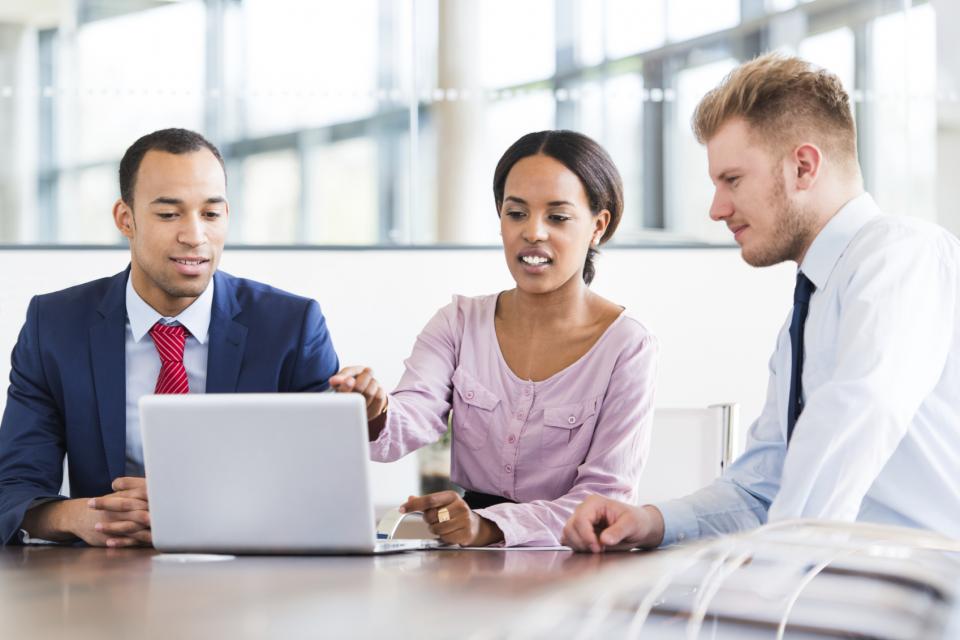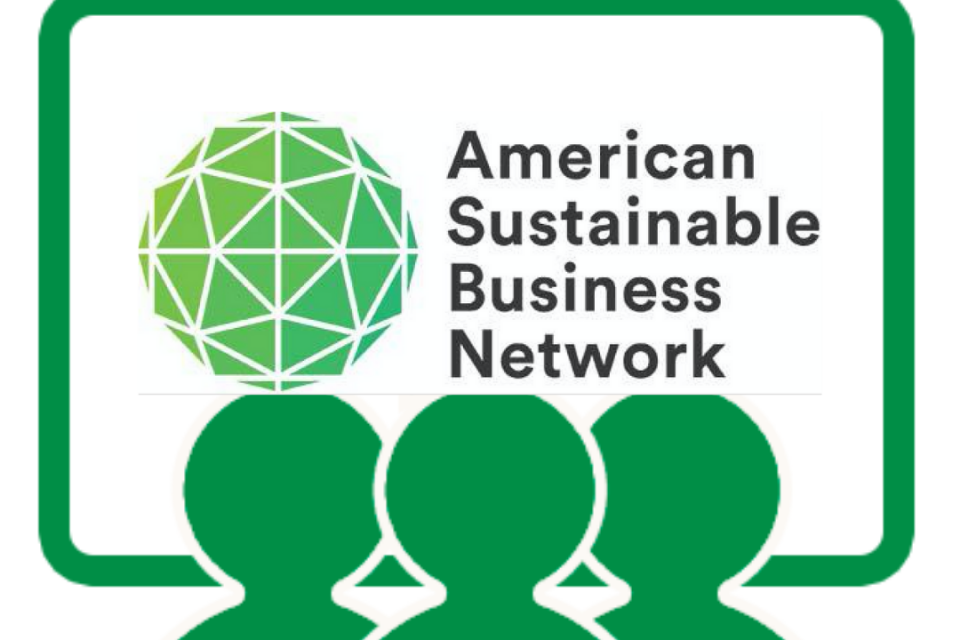The American Sustainable Business Network is working to address the growing concerns about business activities which are unaccounted for, or currently escape disclosure as negative externalities, activities which at this point also do not affect the P&L or balance sheet of corporations. ASBN is calling for policy solutions and other interventions which incentivize the method of True-Cost Accounting or sometimes known as Impact Weighted Accounts. Currently, we believe that policy incentives and or requirements must include considerations of current GAAP standards, regulatory intervention, accounting standards, valuation methodologies, ESG investment criteria, related reporting methods, tax regime reform and an overall increase in transparency and equity in corporate and business governance.
Social and environmental externalities together with poor governance practices most acutely impact BIPoC communities and support systemic racism. ESG standards are a critical tool to use in creating a more just society and economy.
In order to incentivize corporate accountability and support greater corporate disclosure, including ESG disclosure, ASBN will work to advocate for policy solutions which drive:
- Higher levels of transparency across all financial disclosure and reporting
- Inclusive metrics for evaluating real financial risk which include systemic ESG considerations,
- Transparency and equity in insurers coverage and investments, as risk is primarily managed currently through the insurance industry
- Progressive tax incentives which encourage transparent and equitable corporate governance
- Overall support for a just and equitable transition
ASBN seeks to engage thought leaders in our community and networks (including experts in current standard setting and reporting) to offer new proposals for updating policy affecting reporting standards, regulatory agencies, tax, business insurance, federal government procurement, state authority and related financial services.
Read the ASBN – Social Economy Europe Joint Statement on ESG and the Sustainable Development Goals
Over the course of American Sustainable Business Network’s (ASBN) decade plus history, our organization along with our members and affiliates have consistently championed ideas and causes that contend social well-being and economic well-being are inextricably linked. Often ahead of the policy curve on a variety of issues centering and integrating this linkage, ASBN has time and again deployed convening strategies of cross-pollination, coalition building and “reconciliation of opposites” collaboration to drive impact and effect change.
We are privileged to continue on this path of partnership with Social Economy Europe (SEE), together with other thought leaders such as the World Fair Trade Organization (WFTO), Oxford-SAID’s “Economics of Mutuality” initiative, Sara Horowitz’s “Mutualism: Building the Next Economy from the Ground Up”, and Rebecca Henderson of Harvard Business School (HBS) calling out the “Reimagining Capitalism” imperative by co-convening the global social economy enterprise community.
Of specific concern to ASBN is worsening economic and social inequality, prevalent in the United States at levels beginning to surpass historical records set almost a century ago. Predatory and extractive market, resource and wealth concentration coupled with growing environmental degradation and the planetary climate emergency exacerbate the lack of access to quality jobs, healthcare, food, water, education, transportation and housing for most people around the world. While ASBN whole-heartedly supports the Sustainable Development Goals originally published in 2015, six years later it is apparent that we are further away from achieving these goals than ever before, with a target date of 2030 only nine short years into an endangered future.
Therefore, the American Sustainable Business Network alongside our partners such as Social Economy Europe (SEE) are calling to revisit the 17 goals originally set with the specific objective of ensuring that destructive levels of inequality are directly addressed. Together with SEE, ASBN is proud to be partnered with ASBN board member, Michael Peck of 1worker1vote, and Ibon Zugasti of LKS-Mondragon on furthering the clarion call for needed urgent action as set forth in their paper, “ESGs and SDGs Meet their Port Alegre Moment” first published in March and then updated in November, 2021, for the ICA World Cooperative Congress in Seoul, Republic of Korea. Please find the paper here and watch this space for continued updates on our convening such timely and prescient work.

Read the ASBN Comment on S7-10-22: The Enhancement and Standardization of Climate-Related Disclosures for Investors
ASBN Comment on S7-10-22: The Enhancement and Standardization of Climate-Related Disclosures for Investors
The American Sustainable Business Network (ASBN) and the business organizations it represents strongly support the Securities & Exchange Commission’s (SEC’s) proposed rule to enhance and standardize registrants’ climate-related disclosures for investors. We issued a release on the day the proposal was announced on March 21st that can be found here:
https://www.asbnetwork.org/media-release/secs-proposed-climate-related-disclosure-requirements-are-big-step-right-direction
Shortly thereafter (beginning on April 5th) ASBN provided stakeholders with the opportunity to take action to “Sign on to Support SEC Climate Disclosure: Protect Investors and The Planet.” The campaign can be found here.
https://www.asbnetwork.org/post/take-action-0
The American Sustainable Business Network is a movement builder in partnership with the business and investor community. ASBN develops and advocates solutions for policymakers, business leaders, and investors that support an equitable, regenerative, and just economy that benefits all – people and planet. As a multi-issue, membership organization advocating on behalf of every business sector, size, and geography, ASBN and its association members collectively represent over 250,000 businesses across our networks. ASBN was founded through the merger of the American Sustainable
Business Council and Social Venture Circle.
We appreciate the way the SEC managed the process before issuing the subject proposal. Regulators often begin the process with an ambitious policy proposal, with the expectations that they may need to curtail some or parts of the proposal along the way in response to opposition from stakeholders. In this instance, the SEC asked for industry feedback at the onset of the process to incorporate the feedback collected in the proposal. ASBN commends this transparency process to governing and regulation creation.
The enhancement and standardization of climate-related disclosures is overdue and urgently needed to help investors and American businesses compete effectively in an economy that needs to move faster than it is today towards decarbonization.
In a recent survey of U.S. asset managers and asset owners conducted by the Principles for Responsible Investment, among respondents representing a total of over $3.3 trillion in assets under management, 87.5% said they want the SEC to require companies to report ESG information in a consistent, comparable, and easily accessible format. Meanwhile, 77 investors who are PRI signatories—representing altogether $6.8 trillion in assets under management—have signed onto a PRI-led letter to the SEC calling for standardized, mandatory disclosure of material climate-related ESG information.
Under today’s governance, businesses and investors working to decrease or eliminate their impact on the climate crisis do not have a level playing field when it comes to reporting and assessing climate-related topics and validating suitable investment choices. Investors and business owners, and consequently their impact on the climate crisis, will benefit from greater transparency and accountability proposed by the SEC.
Under the SEC’s proposal, U.S. companies would be required to have some of their carbon emissions included in regulatory filings. Scopes 1 and 2 greenhouse gas (GHG) emissions will need to be included in annual filings, such as 10-Ks. Additionally, indirect emissions will need to be included from upstream and downstream activities (scope 3) if material, or if the company has set a GHG emissions target or goal that includes scope 3 emissions. Materiality is a dynamic concept that is under constant debate, but the SEC currently upholds that “[a] matter is ‘material’ if there is a substantial likelihood that a reasonable person would consider it important” from a financial perspective. We uphold that environmental and social considerations should fall under the concept of materiality and the duty to disclose; including key scope 3 outputs, as key stakeholder groups must be part of a determination process and as they are essential to investor decision making and accurately capture the increasing overlap of risk perspectives. We encourage the SEC to add a new subpart to Regulation S-K and a new article to Regulation S-X to require registrants to disclose climate-related information. Details that we recommend that the new content should include:
- Disclosure requirements for Scope 1, Scope 2 and Scope 3 emissions as defined by GHG Protocol. We do not have a problem with the compliance date schedule as articulated in the March 21, 2022 proposed rule, but Scope 3 should ultimately be included.
- Disclosure of an internal price on carbon. Smart companies should be integrating price on carbon as a practical matter. It’s a relevant disclosure for informed investment.
The proposal would also put forth that companies disclose if they are using offsets in their emissions accounting. This type of information about specific emissions is not standardized, if it is currently disclosed at all, and the SEC’s proposal for standardization is also helpful to improve transparency and verification. ASBN believes all three scopes are critical, particularly scope 3, because they are the biggest and broadest components of most company’s impact on climate change for most sectors of industry and are the most likely emissions abated by offset schemes in the course of a firms’ emissions lifecycle calculations. Furthermore, ASBN believes that all public companies should be obligated to set CO2 reduction targets so they become obligated to make disclosures under the proposed rule.
By including scope three emissions in their guidelines, the SEC is ensuring that businesses are also taking into consideration the full lifecycle analysis of their products. For industries such as transportation, which is the fastest growing sector for greenhouse gas emissions, this is a critical step. In fossil fuel production, there is a limited portion of emissions generated in scope 1 and scope 2 in comparison to when the fuel is used by the consumer. This will level the playing field for clean energy choices as well as corporate leaders who are already making the transition to cleaner forms of energy. It will also level the playing field for investors as they consider climate risk profiles across the marketplace.
ASBN believes disclosure will support all companies being rightfully rewarded in the marketplace that perform authentically on ESG measurers. Furthermore, requirements should be highly inclusive to allow all businesses, especially SMEs, to improve transparency and accountability throughout their value chains. Many publicly traded companies already measure and report on Scope 1 and 2 emissions. Scope 3 is trickier, especially when companies rely on the private sector. However, as those disclosures increase for public companies, private suppliers will have more incentive to track and manage their emissions in order to compete for contracts. Better climate management among suppliers will in turn make for a more resilient supply chain.
Additionally, requirements should be accessible to the entire value network of a public firm, especially privately-held SMEs upstream and down, so that all firms doing business with public companies are able to disclose accurate climate data to these public firms. ASBN supports the critical need for disclosure throughout our economy, and recommends the SEC ensure that these requirements take into account the ripple effect they will have throughout US and global value chains.
Another instrumental issue is that Corporate Directors owe fiduciary duties of loyalty, care, good faith, confidentiality, prudence, and disclosure to their corporate shareholders. The duty of care requires directors to inform themselves prior to making a business decision. The SEC’s proposed rules to require companies to disclose climate related risks positions directors to fulfill their fiduciary duty of care as required under law given the vast amount of information that shows corporate transparency is beneficial to a corporation’s bottom line. The proposed rules are a good business decision that ASBN will advocate for on Capitol Hill and beyond.
ASBN has been working to address serious and growing concerns about business activities which are unaccounted for, or currently escape disclosure as negative externalities, which at this point also do not affect the P&L or balance sheet of corporations. These negative externalities are effectively unaccounted for in today’s accounting requirements leading to a massive blind spot for businesses and investors as to the real impact of the contribution of businesses to the climate crisis.
The proposed standards will also help to reduce greenwashing. Companies of all types that are advertising, marketing, drafting ESG statements, or disclosing information will be required to pay extremely close attention to the language used in all of these types of documents, or run the risk of SEC scrutiny.
ASBN will continue to advocate for stronger and more regulated corporate transparency and ESG disclosure and will be monitoring and commenting on the issues that relate to these matters.
Ali-Reza “A.R.” Vahabzadeh
Executive Vice President Head of Membership
Chief of Staff & ESG Policy Co-Lead
American Sustainable Business Network
E: arv@asbnetwork.org
T: 917-575-6293
Washington, D.C










